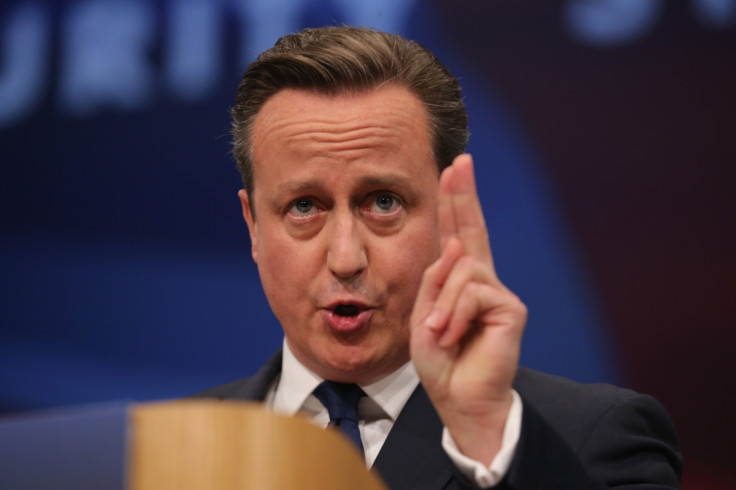Syria air strikes: Tory MPs grill David Cameron over anti-Isis rebels in Commons showdown

David Cameron faced tough questions from his own MPs when he outlined his case for extending UK air strikes on Islamic State (Isis) targets to Syria. The prime minister said Britain should intervene in the civil war as jihadists represent a threat to the UK and, after the terror attacks in Paris, is was not right for our security to be "outsourced".
The Conservative leader also said that the UK should not wait around for a "political solution" in Syria, which would see dictator Bashar al-Assad resigning as president, and instead argued that it was vital to counter IS first.
The prime minister went on to promise that there would no British ground troops involved in the conflict if the UK did intervene and the operation would use air attacks from RAF jets and drones.
However, Cameron faced doubts after he claimed there were around 70,000 non-Islamist rebels in Syria who could take the fight to the jihadists. "Although the situation on the ground is complex, our assessment is that there are about 70,000 Syrian opposition fighters on the ground who do not belong to extremist groups," he said.
Columb Strack, a senior Middle East analyst at IHS, told IBTimes UK that the number depends on what where you draw the line on who you consider Islamist. "I'd say the 70,000 figure is roughly in the right ballpark in terms of the number of rebels that would be willing to enter into a dialogue including Western and other countries over the future of Syria," he explained.
"However, many of these must still be considered Islamist in that their ultimate goal is to establish a Sunni Islamic state. Practically all of the key players among the rebel factions in northern Syria (e.g. Ahrar al-Sham, Jaysh al-Islam, Jabhat al-Nusra) are Islamists to varying degrees. Groups operating in the south of the country, particularly those under the FSA's Southern Front (about 35,000 fighters) are generally more secular."
Tory MP Peter Lilley called the Free Syrian Army (FSA) a "ragtag group" and Julian Lewis, the Conservative chairperson of the Defence Committee, questioned the strength of moderate fighters in Syria.
"The suggestion that there are 70,000 non-Islamist credible ground forces I have to say is a revelation to me and I suspect most other members in this house," Lewis declared. "Adequate grounds forces, in my view, depend on the participation of the Syrian army."
However, one security expert backed Cameron's claim. "That is about right," said Charles Lister, a visiting fellow at the Brookings Doha Centre, on social media site Twitter.
3/3 - Combining (a)&(b) almost certainly results in this broad list, now including 2 conservative 'super-groups': pic.twitter.com/jMKZJzNBWU
— Charles Lister (@Charles_Lister) November 26, 2015
The exchange came after Labour leader Jeremy Corbyn raised concerns about bombing Syria. The left-winger warned that there could be "unintended consequences" from such an intervention and Angus Robertson, the SNP leader in Westminster, warned Cameron that the nationalists would not back air strikes unless the prime minister offered "satisfactory" answers to their questions.
But Cameron did secure a significant backer when Crispin Blunt, the chair of the Foreign Affairs Committee, personally gave his support to the prime minister over the issue. The move came after the committee published a sceptical report of a UK intervention in Syria and following Blunt's decision to not vote for Cameron's plan to bomb Assad and his forces in 2013.
© Copyright IBTimes 2025. All rights reserved.






















